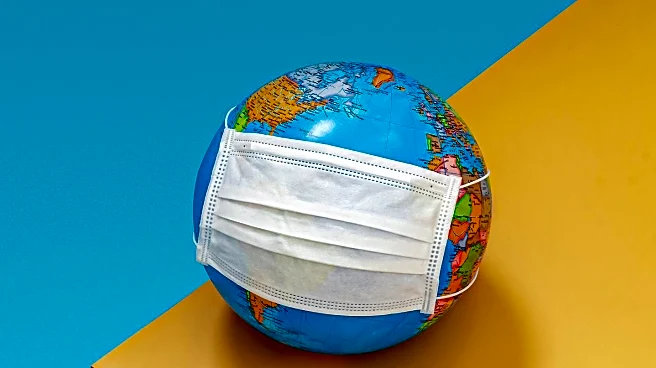What's Happening?
The World Health Organization (WHO) and the United Nations (UN) have highlighted the challenges posed by the 'infodemic'—a term describing the rapid spread of both accurate and inaccurate information during
health emergencies. This phenomenon complicates public health responses by spreading misinformation and disinformation, which can lead to confusion, risk-taking behaviors, and mistrust in health authorities. The term 'infodemic' was coined in 2003 by David Rothkopf and has gained prominence during the COVID-19 pandemic. WHO emphasizes the need for managing the infodemic to promote healthy behaviors and mitigate harm.
Why It's Important?
The infodemic has significant implications for public health, as it can undermine efforts to control pandemics like COVID-19. Misinformation can lead to poor adherence to health guidelines, increased vaccine hesitancy, and stigmatization, ultimately threatening health gains. The infodemic also affects political and economic stability by spreading rumors and false information that can influence public opinion and behavior. Managing the infodemic is crucial for maintaining trust in health authorities and ensuring effective public health responses.
What's Next?
WHO and UN call for coordinated efforts to manage the infodemic, involving governments, international organizations, and civil society. This includes developing action plans to disseminate accurate information and counter misinformation while respecting freedom of expression. The focus is on engaging communities, leveraging digital technologies, and fostering collaboration among stakeholders to enhance public trust and promote evidence-based health practices.









